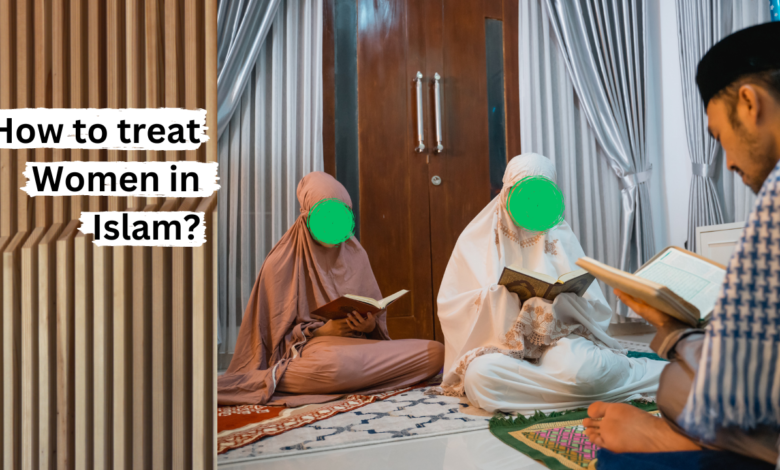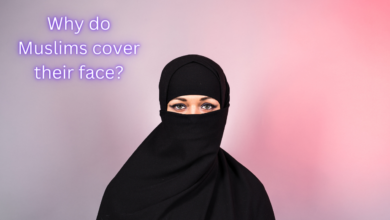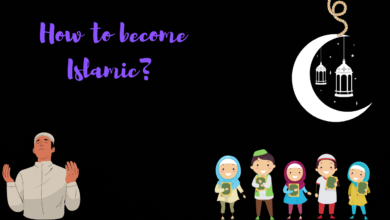How to treat Women in Islam?
Embracing Equality and Respect: Treating Women with Dignity in Islam

How to treat Women in Islam?
Islam places great emphasis on the respectful and compassionate treatment of women, advocating for their rights, dignity, and equality.

Introduction
Islam, a religion practiced by over a billion people around the world, places a strong emphasis on the dignity, respect, and fair treatment of all individuals, regardless of their gender. The teachings of Islam provide clear guidelines on how to treat women with kindness, respect, and equality. This article delves into the principles and practices that underline the treatment of women in Islam, highlighting the importance of upholding their rights and well-being.
Equality and Dignity
Islam recognizes the inherent equality of all human beings, regardless of their gender. In the eyes of Allah, both men and women are valued and deserving of respect. The Quran explicitly states in Surah An-Nisa (4:32), “And do not wish for that by which Allah has made some of you exceed others. For men is a share of what they have earned, and for women is a share of what they have earned.”
Respect and Kindness
Respect and kindness are fundamental principles in the treatment of women in Islam. Prophet Muhammad (peace be upon him) emphasized the importance of treating women gently and considerately. He said, “The best of you is the one who is best to his wife.”
Protection and Provision
Islam places a significant responsibility on men to protect and provide for their families. This includes providing financial support, ensuring emotional well-being, and safeguarding their physical safety. However, this provision does not translate to dominance; rather, it is a shared responsibility that encourages cooperation and mutual support.
Education and Empowerment
Contrary to misconceptions, Islam encourages the education and empowerment of women. The first word revealed to the Prophet Muhammad was “Iqra” – “Read.” This highlights the importance of seeking knowledge for both men and women. Many female companions of the Prophet were scholars and teachers, demonstrating the central role women can play in intellectual and spiritual matters.
Marital Relations
Marriage in Islam is seen as a partnership based on love, mercy, and mutual respect. Both partners are to be kind and considerate to each other. The Quran outlines this concept in Surah Ar-Rum (30:21), “And of His signs is that He created for you from yourselves mates that you may find tranquility in them; and He placed between you affection and mercy.”
Legal and Inheritance Rights
Islam established legal and inheritance rights for women, ensuring their financial security and protection. The Quran addresses inheritance in detail, specifying the shares of daughters, wives, mothers, and other relatives. This allocation ensures that women are not deprived of their rightful share of inheritance.

Public Participation
Islamic history is filled with examples of women actively participating in public life. Prophet Muhammad’s wife, Khadijah, was a successful businesswoman, and women during his time contributed to society as educators, leaders, and caregivers. Islam encourages women to engage in beneficial activities within the bounds of modesty and virtue.
Modesty and Dress Code
Modesty is a principle valued in Islam for both men and women. Muslim women are encouraged to dress modestly to preserve their dignity and discourage objectification. While the specifics of modest dress vary across cultures, the essence remains the same – to avoid drawing unnecessary attention and to promote self-respect.
Conclusion
Treating women with respect, kindness, and equality is not only a moral obligation in Islam but also a fundamental aspect of maintaining a just and harmonious society. By following the teachings of the Quran and the example of Prophet Muhammad, Muslims are reminded to honor and uplift the status of women in all aspects of life. It is through these principles that Islam aims to create an environment where both men and women can thrive, contribute, and live fulfilling lives.
How does Islam emphasize the treatment of women?
Islam places great emphasis on the respectful and compassionate treatment of women, advocating for their rights, dignity, and equality.
Are men and women equal in Islam?
Islam teaches that men and women are equal in their spiritual and moral worth but have distinct roles and responsibilities based on their natural differences.
What rights do women have in Islam?
Women in Islam have rights to education, inheritance, ownership, employment, and protection from abuse or exploitation, among other fundamental rights.
How should Muslim men interact with women who are not their relatives?
Muslim men are advised to interact with non-relative women respectfully, modestly, and within the boundaries of Islamic guidelines. This includes avoiding inappropriate physical contact and maintaining modest speech.
Can Muslim women work or pursue education?
Yes, Islam encourages women to seek education and contribute to society through various roles, including work. However, the priority is given to maintaining a balance between family responsibilities and personal pursuits.
What does Islam say about domestic violence or abuse against women?
Islam strictly condemns any form of violence or abuse, including domestic violence, against women. Such actions are in direct violation of Islamic principles of compassion and respect.
How should a husband treat his wife in Islam?
A husband is instructed to treat his wife with kindness, love, and respect. He should provide for her material needs and emotional support, consulting her in family matters and valuing her opinions.
Can women lead in the community or hold leadership roles in Islam?
While women can hold leadership roles in various aspects of life, Islamic traditions generally lean towards male leadership in matters like congregational prayers or political leadership.
What is the significance of hijab in Islam?
The hijab is a symbol of modesty and privacy for Muslim women, encouraging them to cover their bodies and hair when in the presence of non-mahram (non-relative) men.






